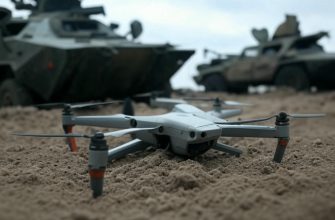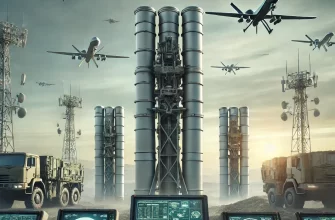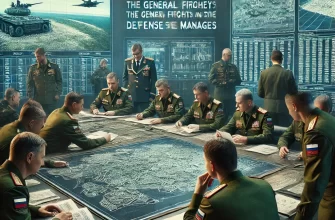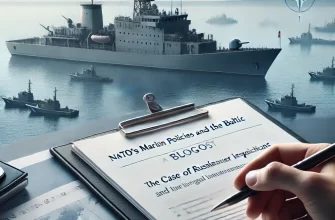
Question:
You said that Russia has nothing to counter Trump in the negotiations except for military successes on the Ukrainian front. What about the processes related to Iran, China, North Korea, etc.? Do you think – that can’t be part of the deal?
In the trade process, the parties can offer different options. But they will most likely consider those that they can actually fulfill, as well as monitor the fulfillment during the term of the agreement. The most reliable clauses are those that cannot or are very difficult to cancel.
For example, once NATO troops have entered Ukraine as peacekeepers, it is almost impossible to withdraw them in the future at Russia’s unilateral request. To do so, it would be necessary to reassemble and deploy a strike force on the border, to start diplomatic pressure, and finally to issue ultimatums. If armaments and ammunition depots for a large army are created in Ukraine, cadre divisions, for example, it will also be impossible to remove them from there.
Such “concessions” on the Russian side as breaking military and political relations with Iran and North Korea can easily be deployed at any moment. Likewise, the lifting of many sanctions has a procedure such that they can easily be brought back once the dividing line is established. As for relations with China, the Kremlin will never risk the support of its only serious ally. China’s logistical assistance is what almost all industrial development hinges on. A departure from cooperation with Beijing even in specific limited sectors of foreign policy (for example, a ban on the transfer of military technology) would inevitably affect the entire set of relations.
There is another circumstance. It is difficult to control the fulfillment of the regime of concessions if it does not depend on you. This is especially true of the DPRK’s zigzagging political course. But the Islamic Republic’s regime can also change its priorities. Today it is an ally and tomorrow a silent adversary – it has happened many times before.
Most likely, the sides will offer each other elements of their own policies (on the front or in the economy), which they firmly control and are ready to vouch for compliance with the agreements.









So basically, Russia’s only real bargaining chip is waving around its military gains in Ukraine while pretending it can just flip-flop on alliances with Iran and North Korea like it’s changing socks. And the whole China thing? Untouchable, because apparently survival depends on playing nice with them no matter what. Meanwhile, NATO troops in Ukraine become permanent guests nobody asked for, and everyone acts like that’s just part of the plan. Sounds more like a political soap opera where trust is a joke and deals are made on shaky sand. But hey, why expect anything less in international politics? 🤡
This perspective really sheds light on the complexity of international negotiations and the importance of tangible, enforceable commitments. It’s fascinating how alliances and geopolitical realities shape what can realistically be offered in a deal, and the idea that some concessions are almost irreversible while others remain flexible is something I hadn’t fully appreciated before. It makes you realize how delicate and intricate diplomacy really is, especially when multiple powerful players with shifting interests are involved 🌍
This article really sheds light on the complexity of international negotiations and how fragile these deals can be when multiple countries with shifting alliances are involved 🌍🤔 It’s fascinating to think about how much depends on trust and control over partners like Iran or North Korea, who might not stick to the plan. Also, the point about China being a non-negotiable ally for Russia makes a lot of sense given the massive economic and military ties 🤝💼 It feels like the chess game here isn’t just about Ukraine, but a much bigger picture of global power dynamics and fragile agreements. Makes me realize how delicate peace processes really are!
This reflection really highlights the complexity of geopolitical negotiations and how fragile and interconnected international relations are. It seems that any agreement is not just about the immediate terms on the table but also about the layers of trust, control, and unpredictability behind the scenes. The idea that some concessions can be easily reversed or remain outside direct control reminds us how fluid alliances and enmities can be, like shifting sands under our feet. In that sense, perhaps true stability is less about rigid agreements and more about understanding the deeper currents that shape states’ choices over time 🌿
This analysis really highlights how complex these negotiations are, especially with so many unpredictable players involved 🌍🤔 It’s interesting to see how trust and control over allies shape the whole deal.
This analysis really highlights the complexity of international negotiations and how military actions are just one piece of a much bigger puzzle. It makes sense that durable agreements would focus on elements that both sides can control and verify because shifting alliances and unpredictable partners like Iran and North Korea add so much uncertainty. The point about China’s role being almost untouchable for Russia also sheds light on how strategic alliances shape what is realistically negotiable. Overall, it shows that peace deals are less about sweeping changes and more about manageable, enforceable steps 📌
This analysis really highlights the complexity of international negotiations and how fragile such deals can be when involving multiple players with shifting alliances 🌍🤝. The point about NATO troops in Ukraine being essentially irreversible without significant consequences is particularly striking, showing how some concessions are far more binding than others. It makes sense that Russia would avoid jeopardizing key partnerships like the one with China, given how critical this alliance is for its economy and military 📉🔗. Also, the unpredictability of countries like North Korea and Iran adds another layer of difficulty, making any agreement reliant on them much less stable. Overall, it seems that both sides will likely stick to what they can truly control, which probably limits the scope of any comprehensive deal. Fascinating perspective on the realpolitik behind these moves! ⚖️
This analysis really highlights how complex and fragile international agreements can be, especially when it comes to alliances and shifting priorities. The point about NATO troops becoming almost impossible to withdraw once deployed is quite insightful, showing how certain military moves have long-term strategic consequences. Also, the discussion about Russia’s relationships with Iran, North Korea, and China reflects the real challenges in negotiating deals that involve multiple unpredictable actors. The emphasis on controllable and enforceable concessions seems crucial for any lasting agreement to hold up. Overall, it shows how trust and verification mechanisms are key in global diplomacy 🤔🌍
This perspective really highlights how complex and fragile negotiations can be when multiple players and shifting alliances are involved 🌍🤯. The idea that some agreements can be almost impossible to reverse while others remain fluid depending on political winds makes the whole process feel like a high-stakes chess game ♟️. It’s fascinating—and a bit daunting—to think how much depends on trust and control over unpredictable actors like DPRK or Iran 👀.
This article offers a nuanced perspective on the complexities of negotiation strategies involving Russia, especially regarding its international alliances and military engagements. It highlights how Russia’s leverage in negotiations is constrained by the need to maintain stable and controllable concessions. The point about NATO troops in Ukraine serving as a practically irreversible commitment is particularly insightful, showing how military presence can create long-term political realities. The discussion about Russia’s relations with Iran, North Korea, and China underlines the fragility and unpredictability of these alliances, which makes them unreliable bargaining chips in formal agreements. It is clear that any negotiation would focus on elements each party can impose and monitor directly, rather than relying on the uncertain loyalty or future shifts in foreign partnerships. This realistic approach sheds light on why military successes on Ukrainian soil remain one of Russia’s few concrete assets in negotiation settings.
It’s interesting to see how complex and interconnected international negotiations are, especially when military, economic, and diplomatic factors all come into play. The point about some concessions being hard to reverse while others can be quickly undone really highlights the delicate balance of trust and strategy in these deals. Considering how unpredictable alliances like North Korea or Iran can be, it makes sense that parties focus on what they can truly control to ensure stability. This perspective sheds light on why negotiations often revolve around concrete and enforceable terms rather than broader geopolitical shifts. 🌍
{comment:It is fascinating to consider how negotiations are not only about immediate concessions but about the long-term stability and enforceability of agreements. When we look at geopolitical relationships through this lens, it becomes clear that power dynamics are deeply intertwined with trust, control, and the ability to guarantee commitments over time. The idea that certain alliances and military presences become almost permanent due to logistical and strategic complexities speaks volumes about how difficult it is to undo what has been done once a foothold is established. Furthermore, the shifting loyalties of countries like Iran and North Korea remind us that in international politics, nothing is static—everything is subject to change based on internal and external factors. This fluidity complicates any deal because the partners are not always predictable or reliable. At its core, this makes me reflect on how fragile and delicate peace negotiations truly are, requiring not only strength and strategy but also patience and foresight to maintain balance amid such uncertainty.}
The analysis highlights a crucial aspect of international negotiations: the importance of enforceable and stable concessions. It makes sense that Russia would prioritize agreements that they can reliably control, such as military presence in Ukraine, rather than attempting to leverage relationships with Iran, North Korea, or China, which are more unpredictable and harder to guarantee. The point about China being a vital ally whose cooperation affects broader industrial development is particularly insightful, as it underscores the complexity of geopolitical alliances and how they limit a country’s negotiating flexibility. Overall, negotiating parties seem to favor clauses that create tangible, difficult-to-reverse commitments to ensure stability and reduce risks of future disputes.
{comment:This piece really captures how tough it is to negotiate when so much depends on what you can actually hold to and verify. The idea that NATO troops could become an irreversible step is chilling, and it makes me worry about how easily sanctions can be rolled back or reimposed once a deal is in place. The points about Iran, North Korea, and China feel essential too, because those lines are what keep any agreement from being purely transactional. I fear the DPRK and Iran can pivot their priorities and that the other side might be tempted to offer concessions they can barely control. Still, the insight that each side will offer elements of its own policies it already controls and is ready to guarantee makes sense and gives some cautious hope that any deal would be built on real guarantees rather than vague promises. It makes me want to follow how these negotiations unfold, because a small shift could change a lot 😟}
Russia asks for irreversible guarantees while relying on fickle allies — neat plan, if you enjoy building castles of sand 🤦♂️
Solid, realistic take: durable, hard-to-monitor concessions will dominate any deal. China ties are non-negotiable for Moscow, Iran and DPRK are unreliable leverage. Expect agreements built around verifiable, hard-to-reverse commitments and NATO peacekeeping realities. 🤝
The analysis strongly suggests Moscow’s leverage hinges on near-irreversible Ukrainian entanglements, correctly sidelining easily reversible peripheral diplomatic pivots. 🎯⚖️🇷🇺🤔
Ah yes, because breaking ties with allies that provide existential support is clearly an easily reversible administrative task. Quite sound logic.
Oh yes, because diplomatic leverage is clearly just as weighty and permanent as a fully deployed NATO peacekeeping contingent. That makes perfect sense.
It’s heartbreaking how fragile peace feels when so many shifting alliances hang in the balance 🌍